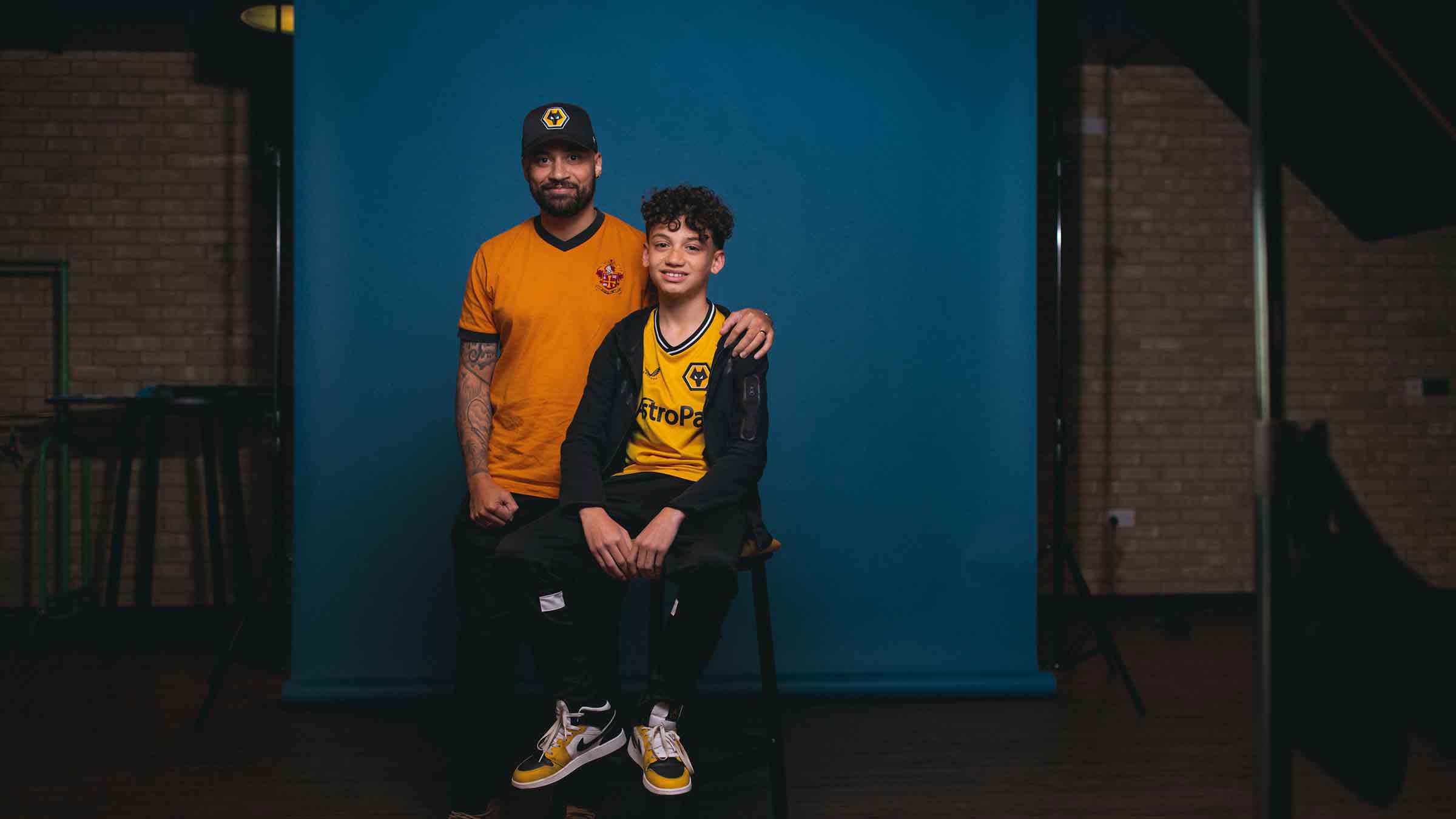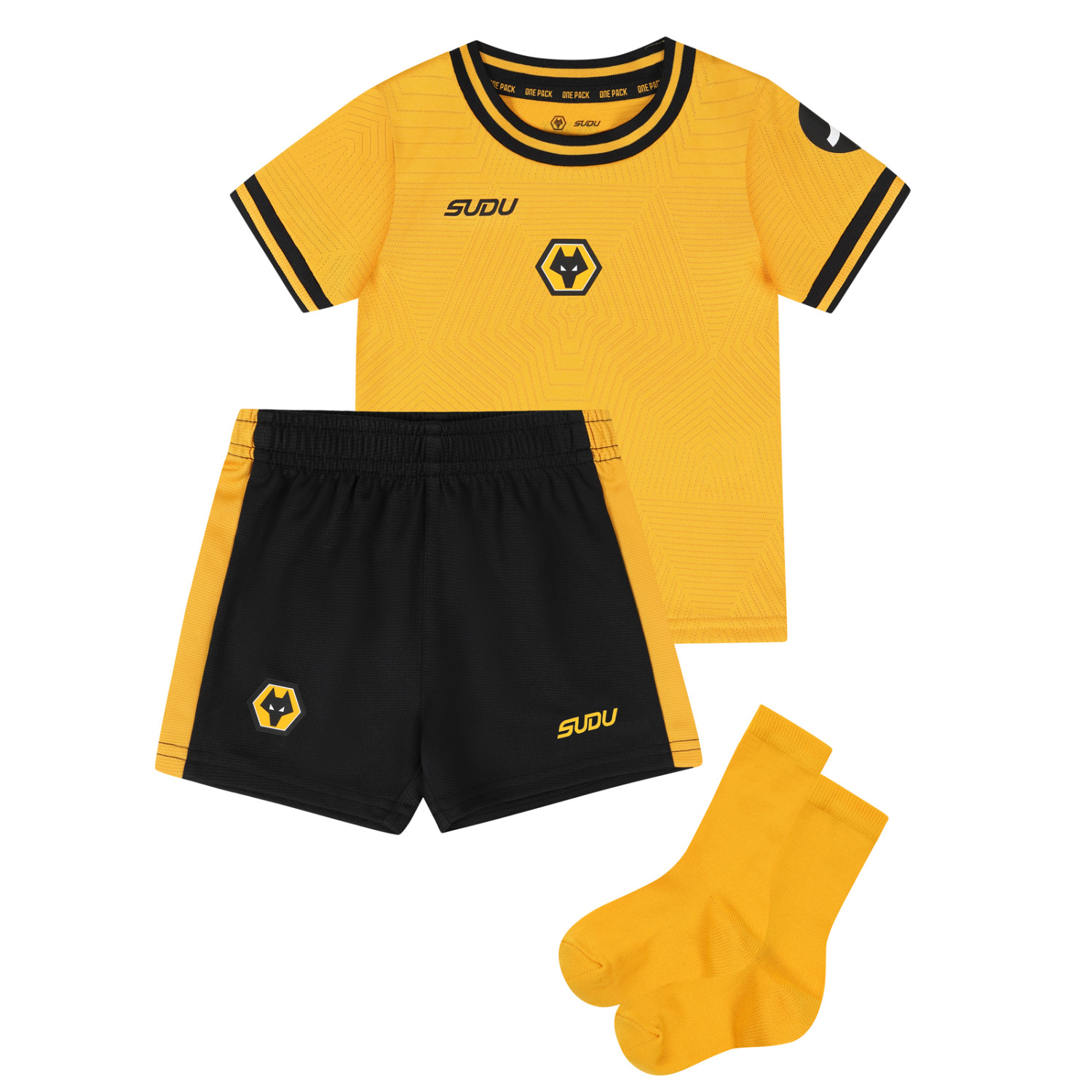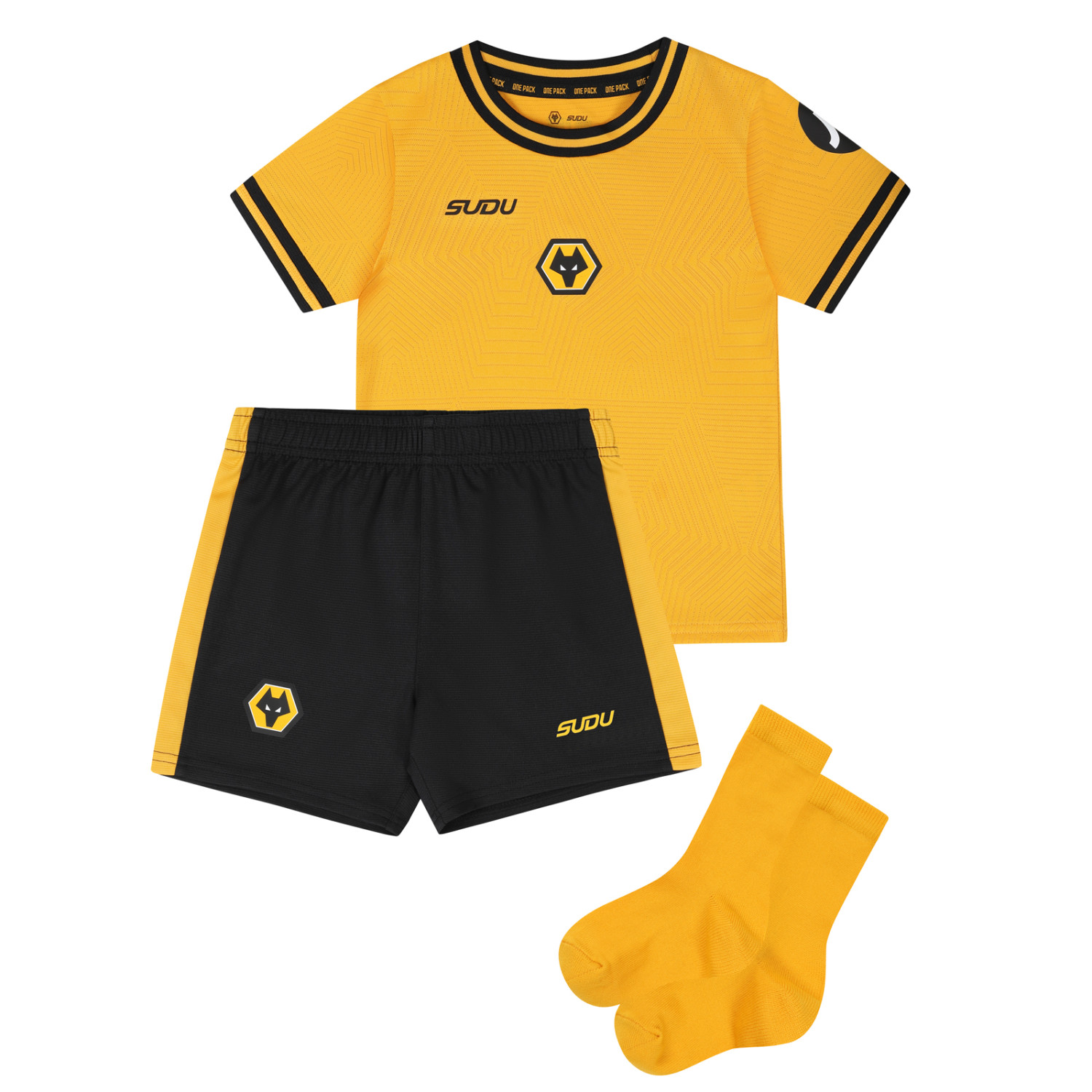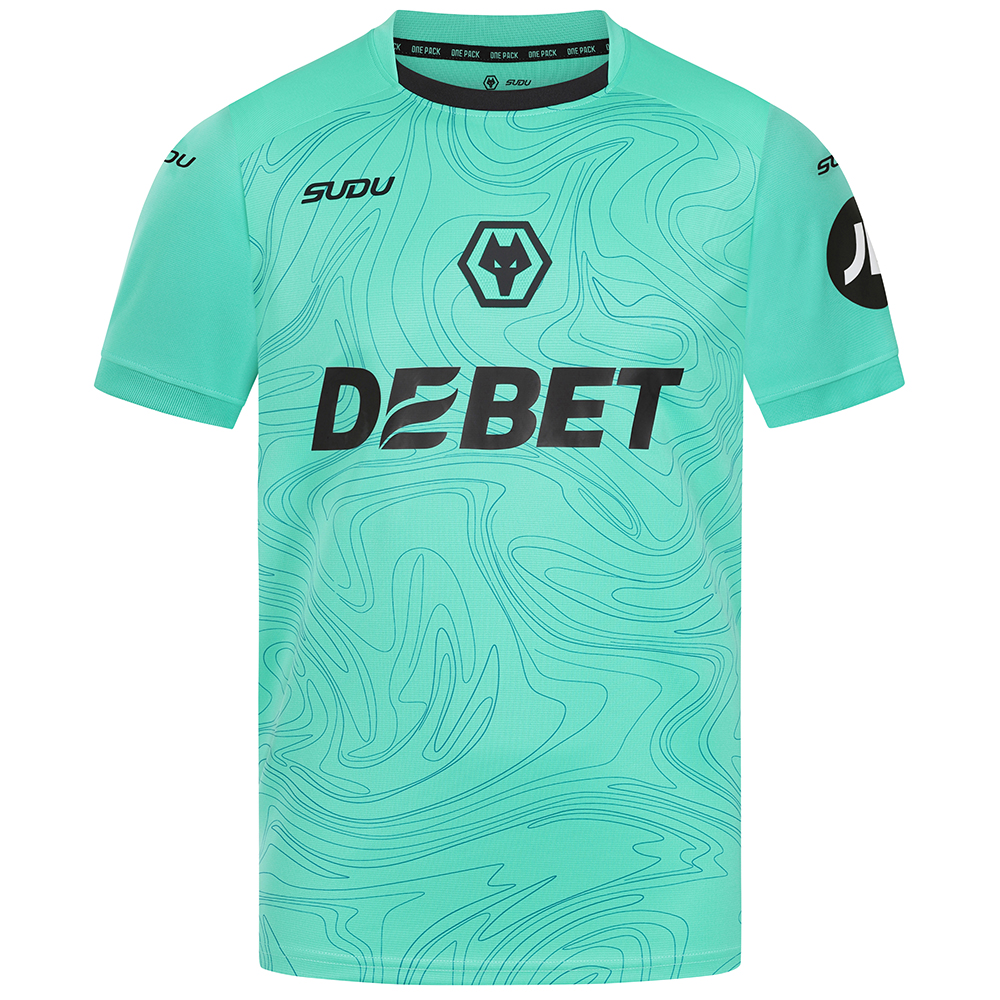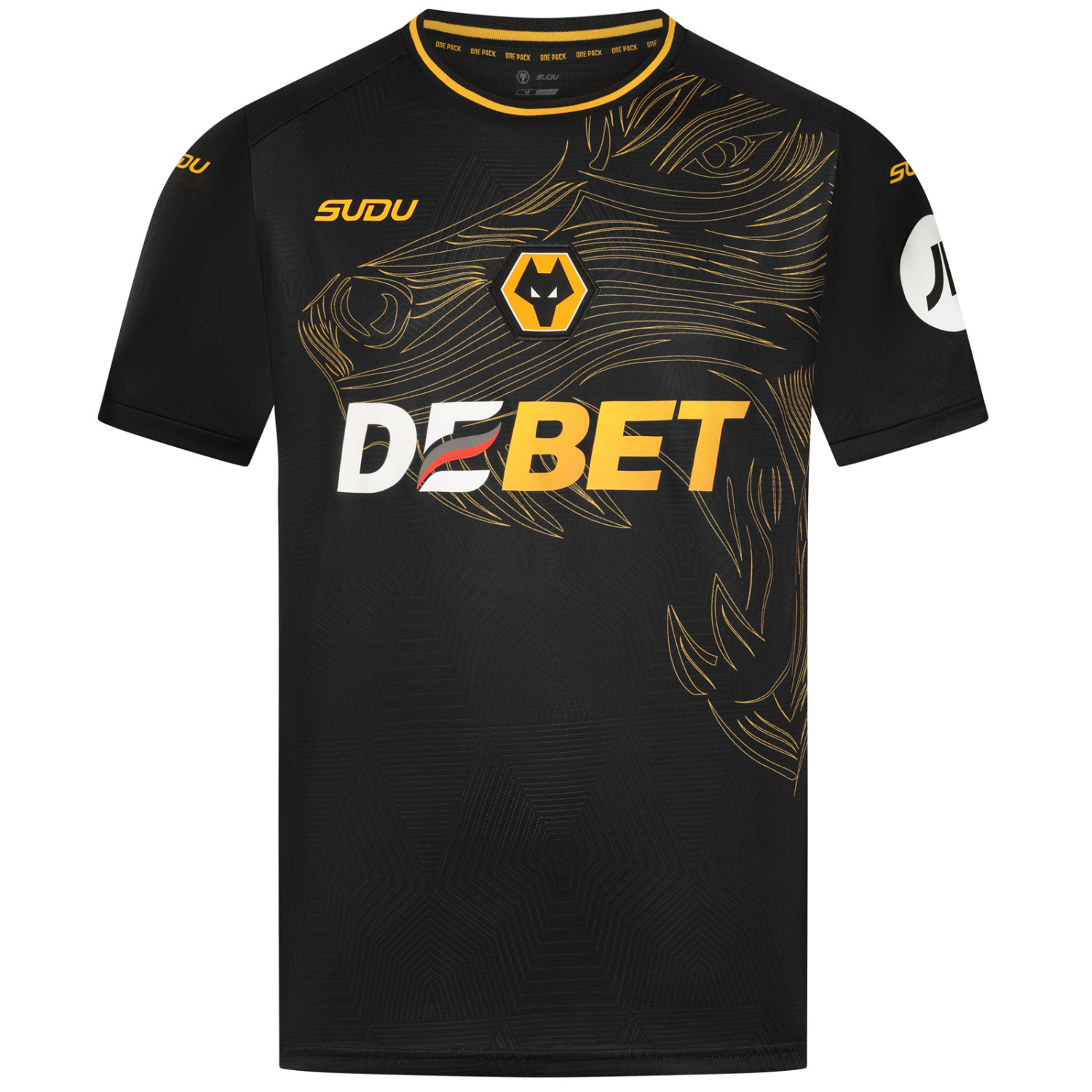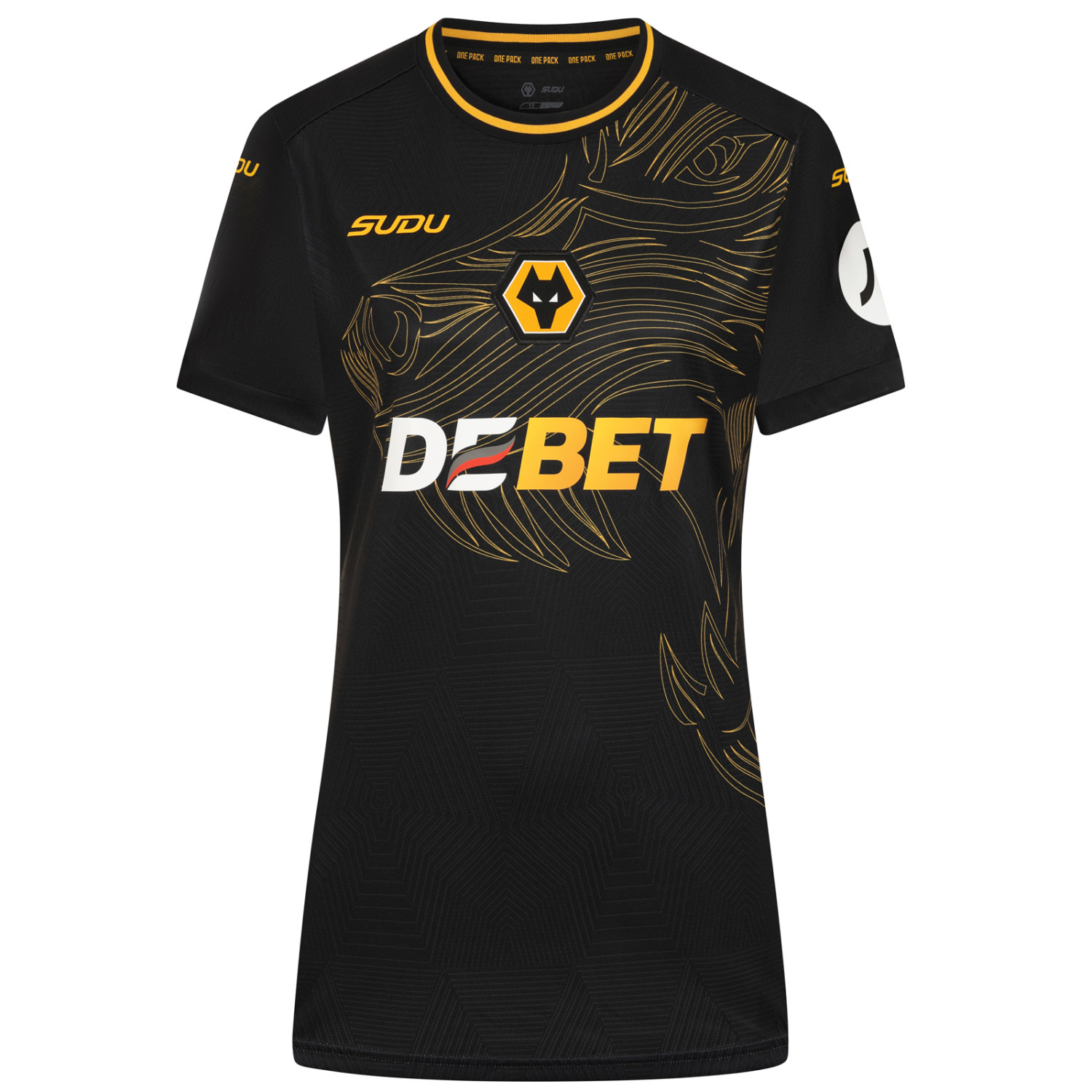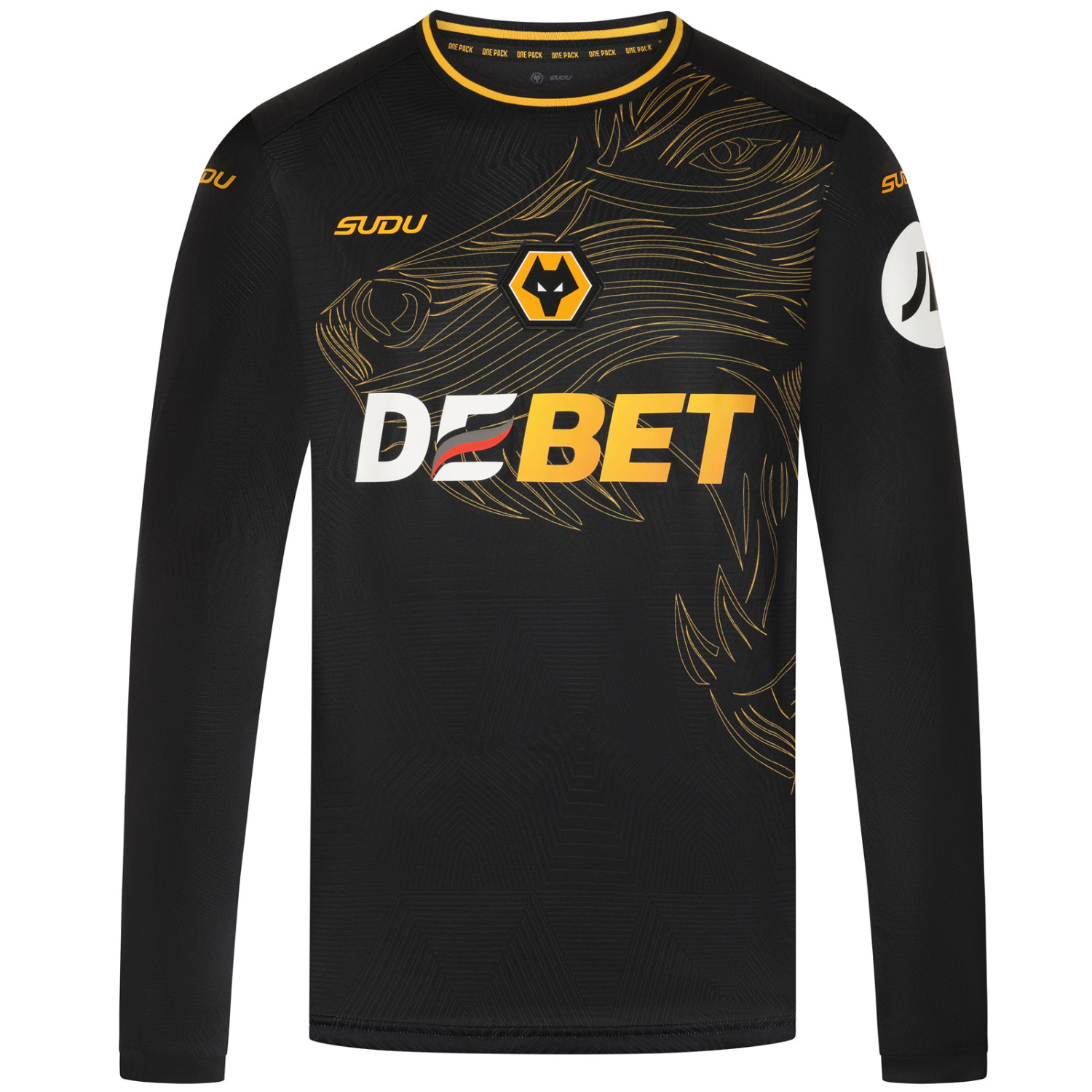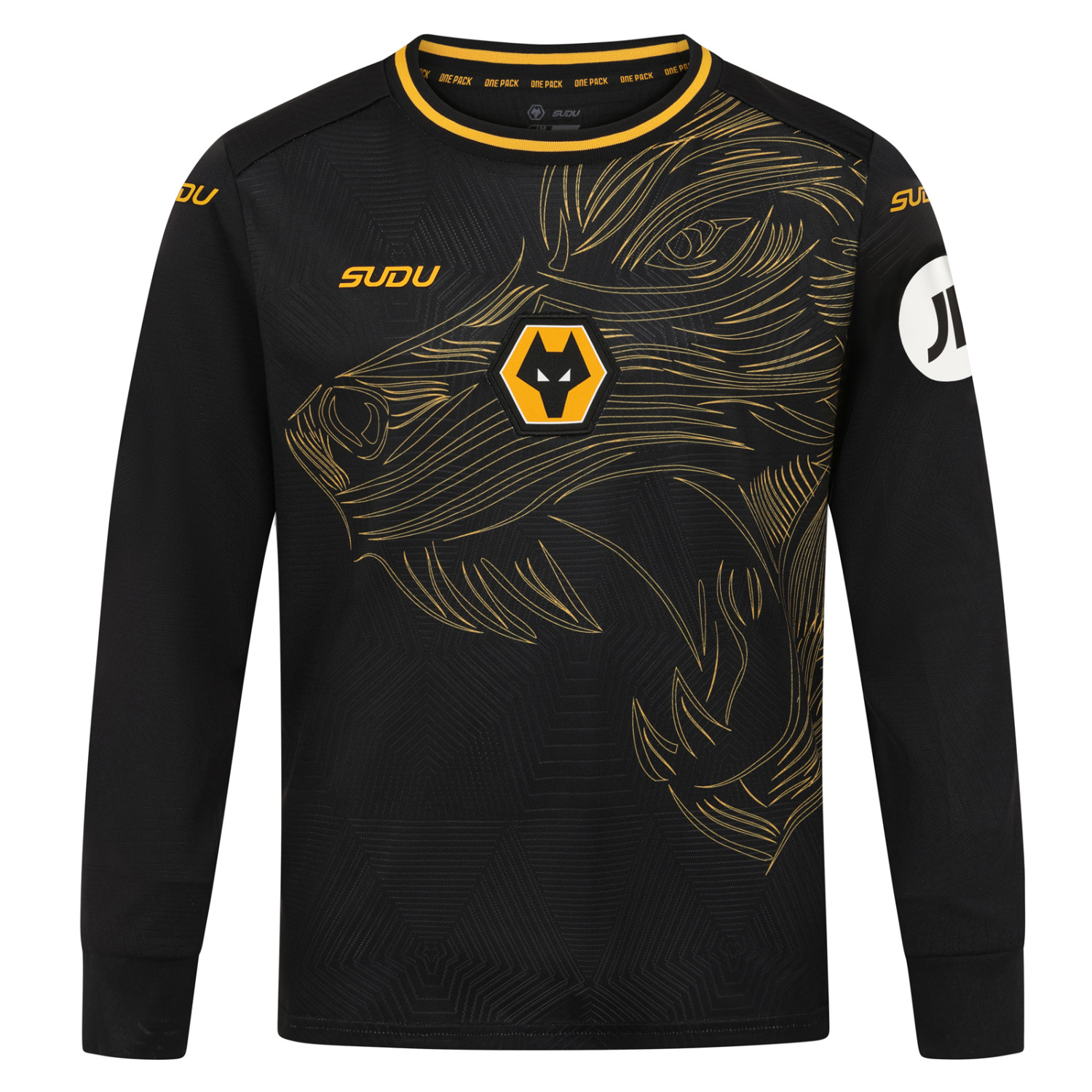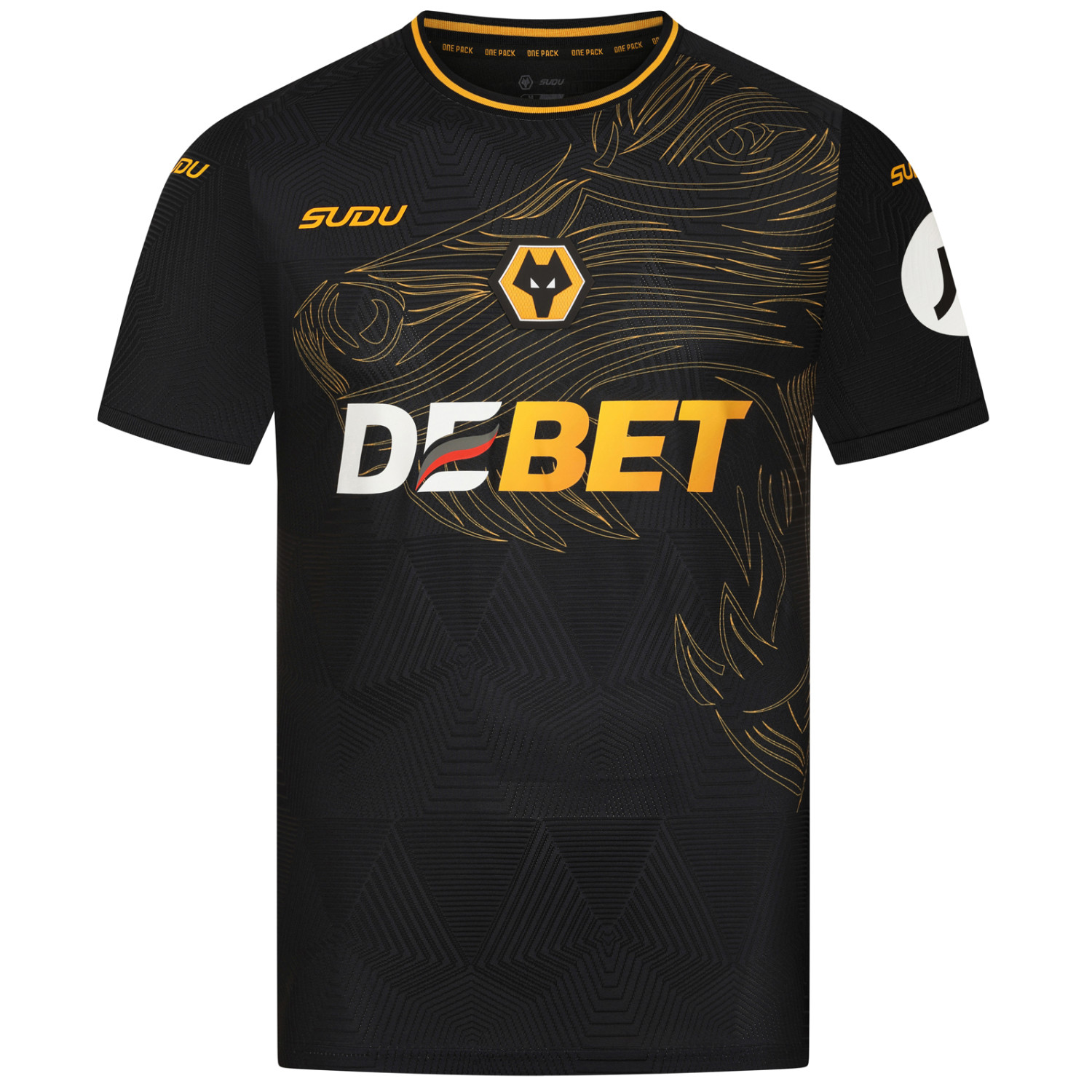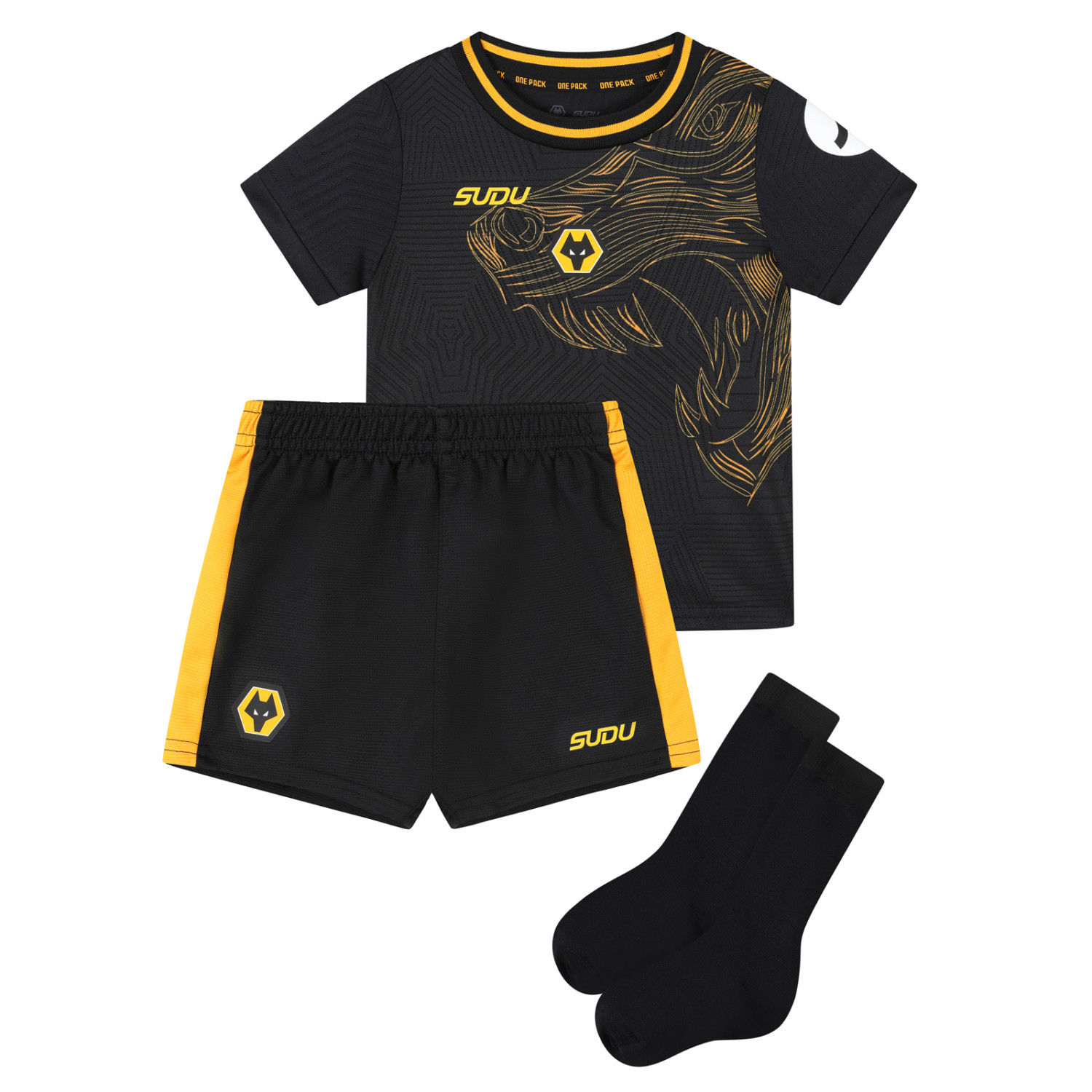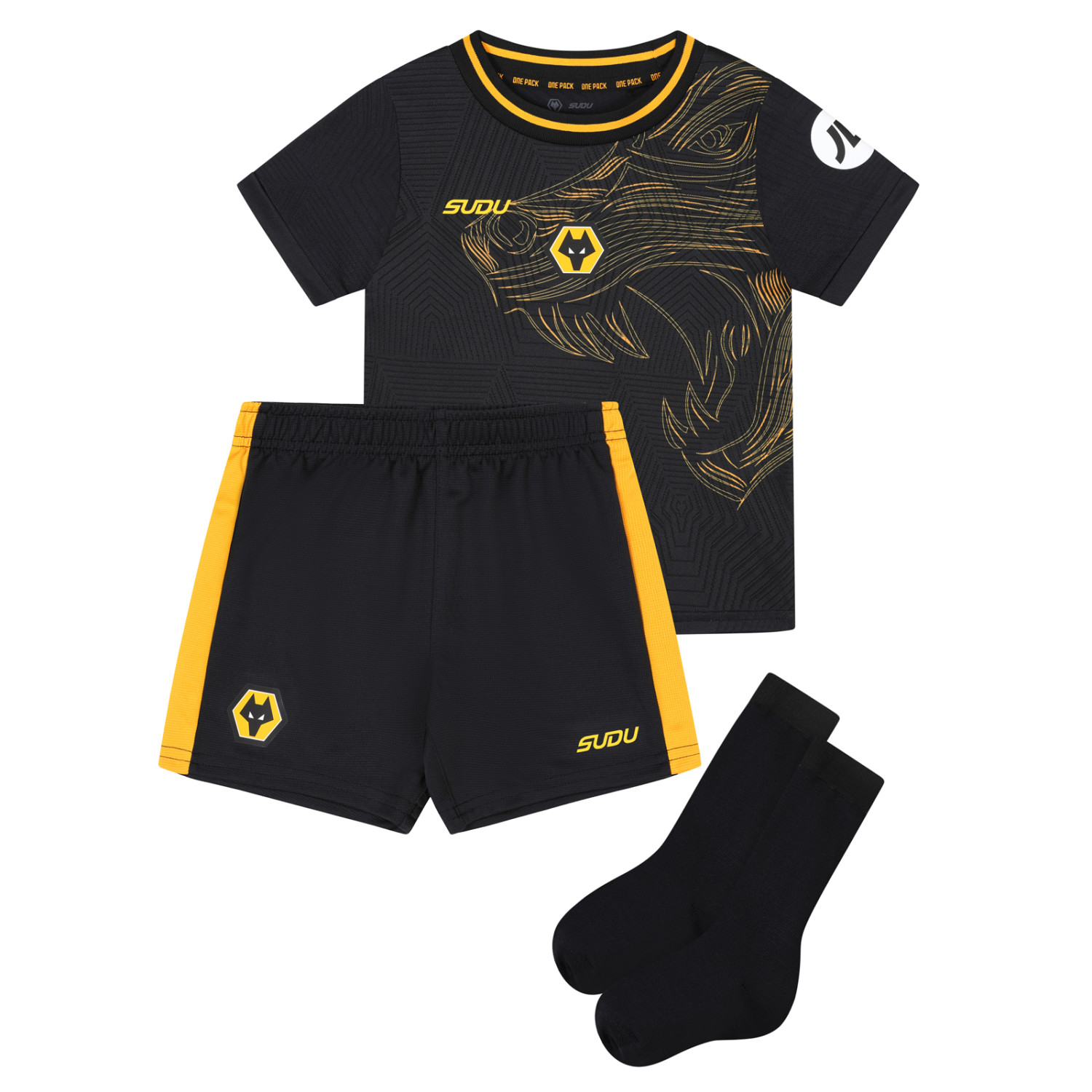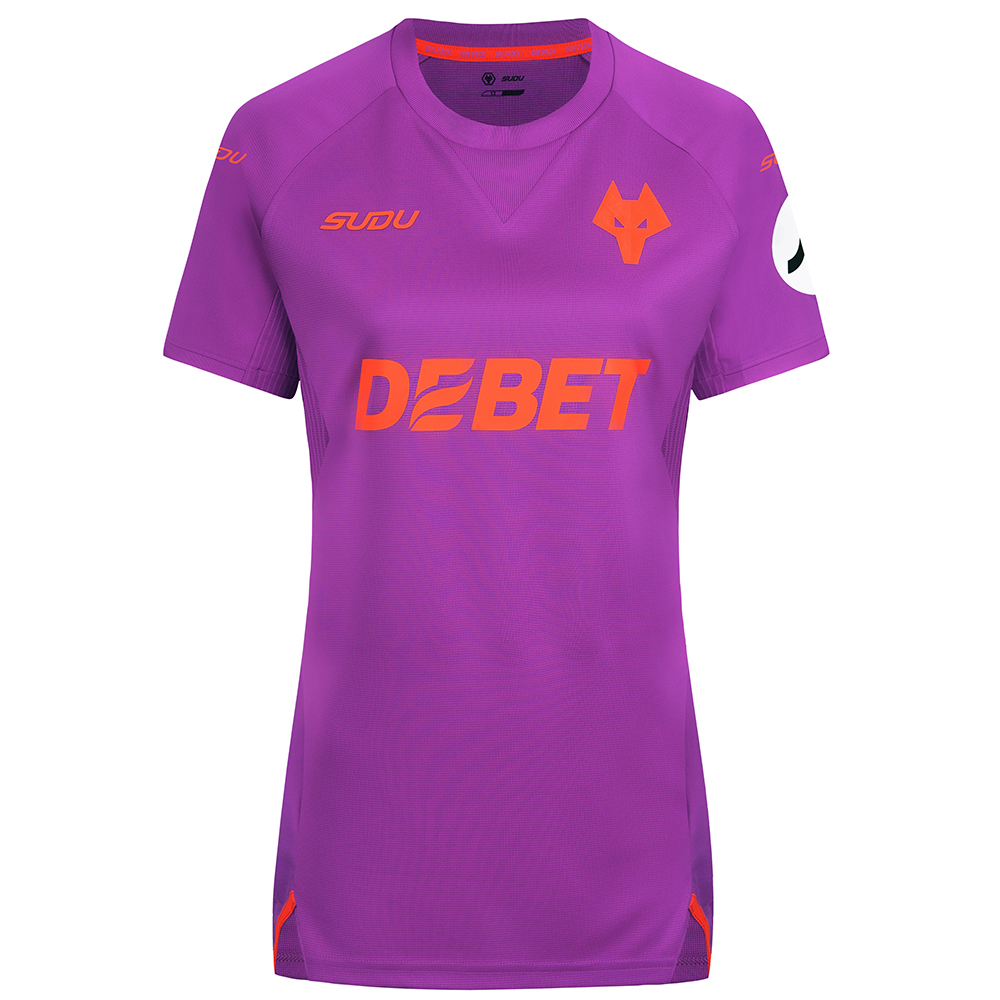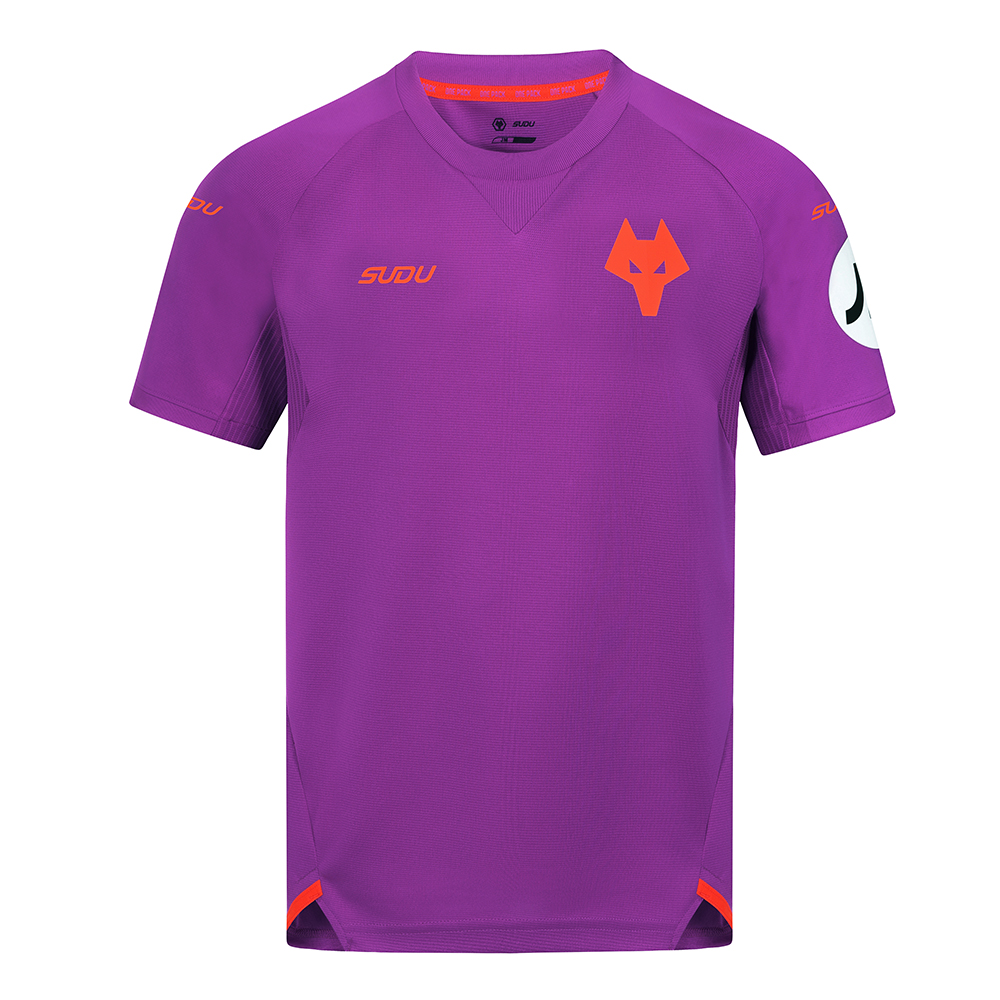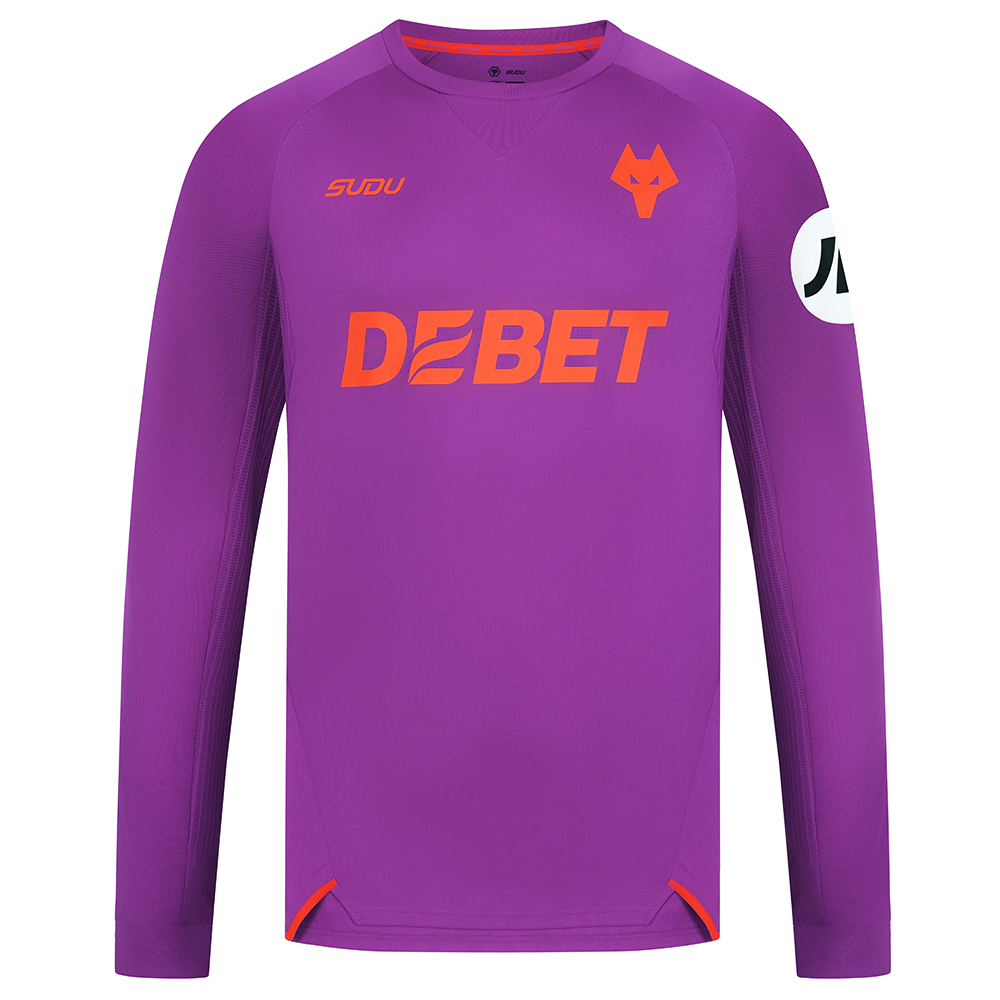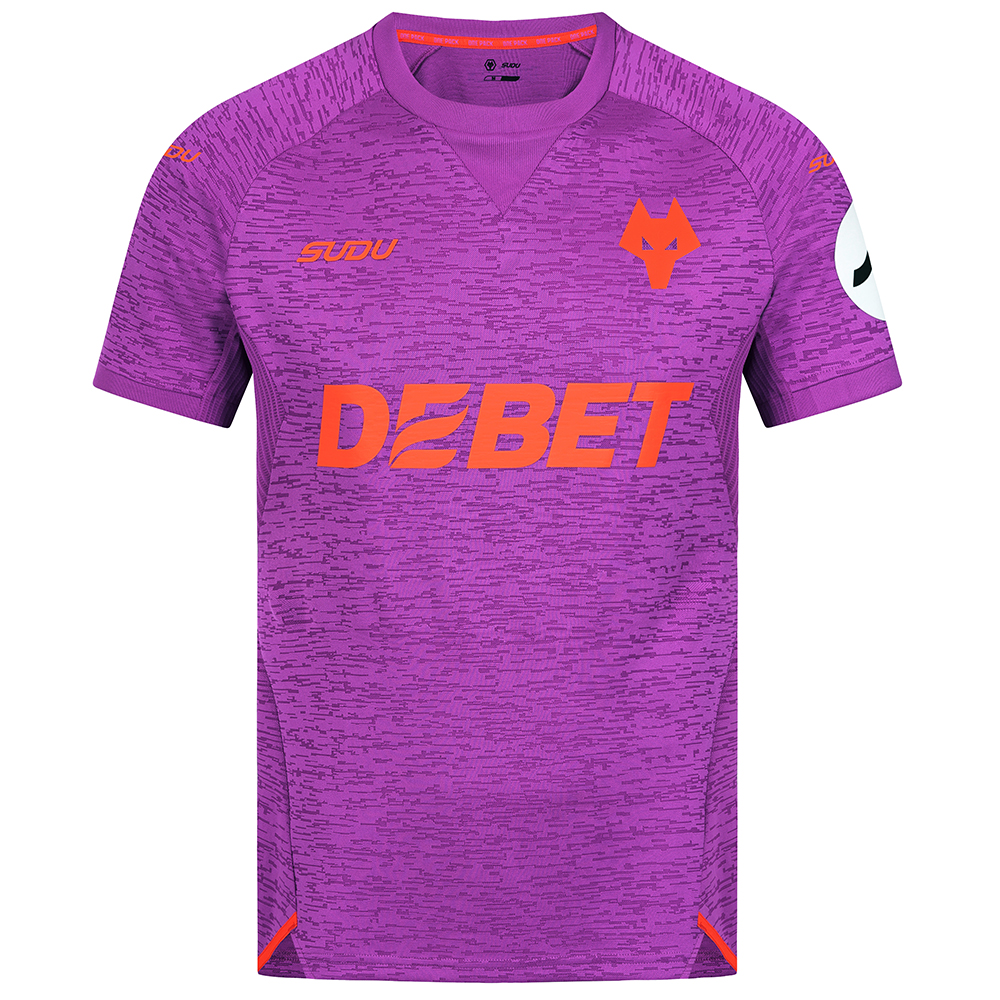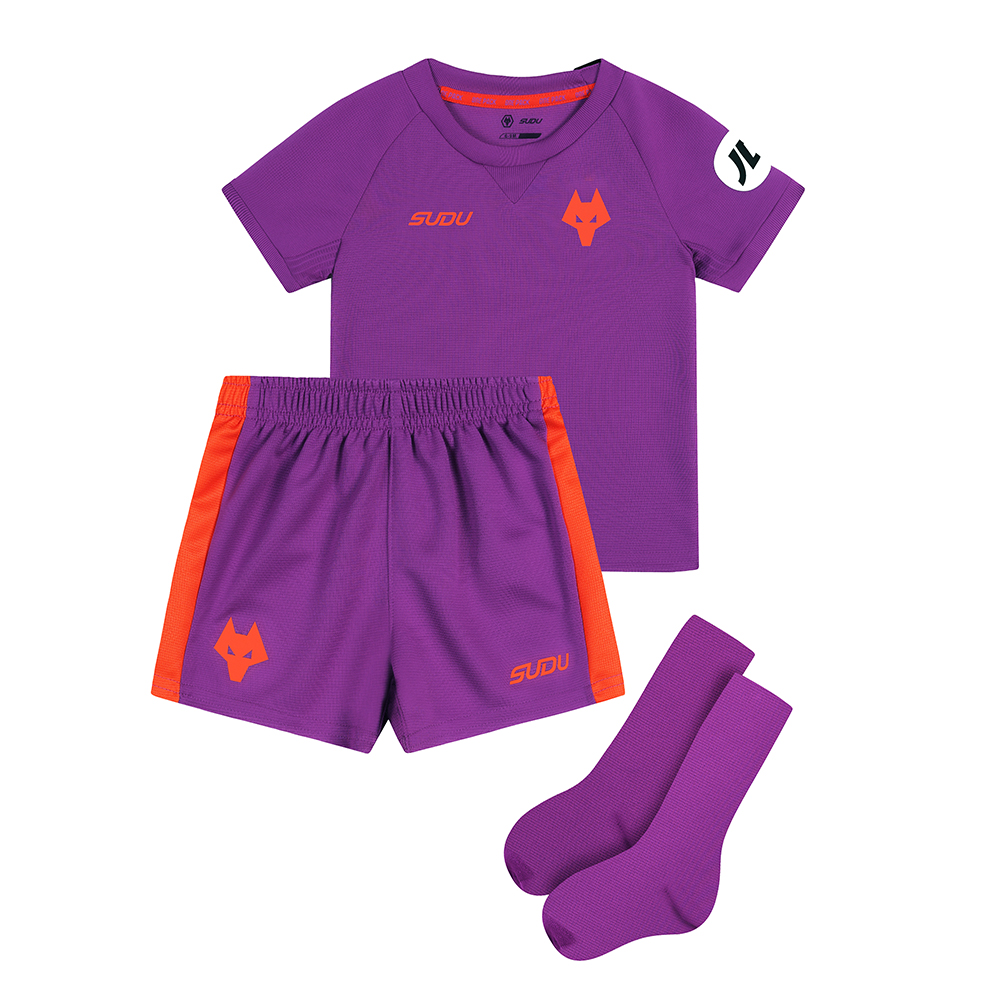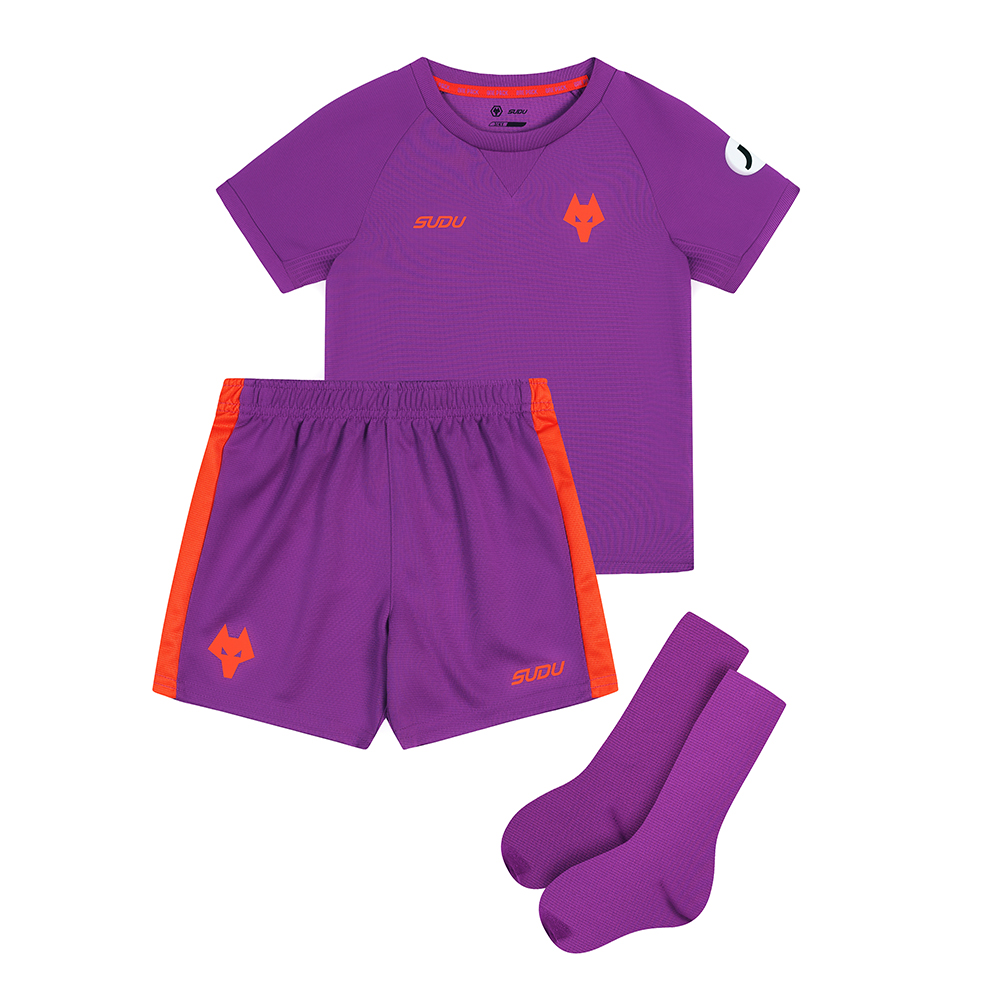For Alex Simmonds and his son Michael, Wolves is much more than just a football club.
It represents family, tradition, identity, and a shared passion that’s been passed down through generations. But more than that, the club is a constant presence in their lives, a place of belonging in a world that has changed so much from when Alex first set foot in Molineux three decades ago to now, as his son grows up in a modern era where football, and the world around it, looks very different.
Their story is one of love for their local club, but also a reflection of the experiences of being Black supporters in a crowd where faces like theirs were once rare.
As Wolverhampton has grown into a more diverse city, the matchday experience has evolved, but Alex and 14-year-old Michael’s journey shows that football can still be a place of both pride and challenge.
Alex, now 40 and living in Coseley, grew up immersed in Wolves culture, with football running through his family like a golden thread.
“A lot of my early life here centred around football,” he said. “One of my earliest memories of football was waiting alongside the road for the Sherpa Van Trophy busses to come past. There's a picture of me, my cousins, my family, all standing on the side of the road.
“We'd always look forward to the matches, and every time I went to my nan and grandad’s, my great uncle and aunties, it was always about speaking about the football results or how things didn't go our way or they did. It was all centred around football, but it was good, fun times.”
For Alex, football was more than just watching the game. It was part of the fabric of his family life, a regular topic of conversation at family gatherings, and a way to bond with the previous generations. His great uncle Bert and his grandfather were key figures in introducing him to Wolves, taking him and his brother to matches as children, and the memories are vivid for Alex, even though some of the early experiences of Wolves in the 1980s weren’t exactly glamorous.
“I remember the first game I ever went to at Molineux being a cold, rainy nil-nil draw, but the second one I got to see Steve Bull score, so from that day, it really was it from there.
“Even though it was cold and a pretty miserable day, it is still a memory that will always stay with me and ever since then, I've just carried on following the team.”
Michael has also caught the Wolves bug, with football not just something to be played after school or spent watching in the stands on a Saturday afternoon – it’s central to his life, just as it was for his dad.
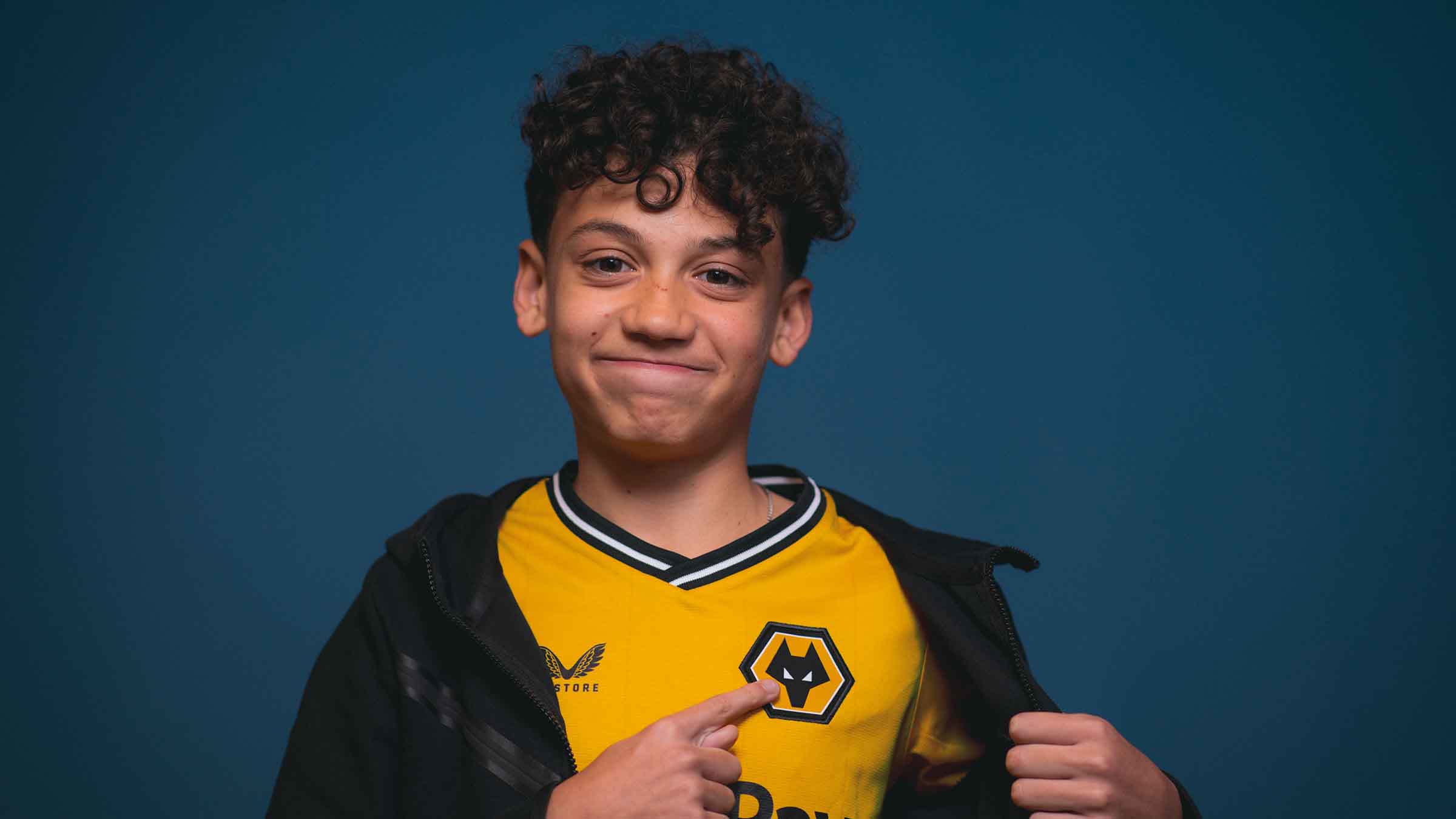
“I've been a Wolves fan all my life. My dad's always loved football, and it's always been a big thing for me, but when I started watching them during the World Cup in 2018, it got me really big into it, and I started following Wolves even more. But I went to Wolves for the first time when I was like four years old, so I’ve been a lifelong fan.”
Michael’s earliest memory of being at Molineux is a moment that many football-loving kids dream of, being a mascot for the team. “It was around 2016 for my birthday, and I can’t remember who we played, but I walked out with Danny Batth. It was outrageous, really.
“There were about 30,000 people there, and I was just looking around thinking that I was in a football match, in the middle of the pitch. And I just looked at everyone, even the away supporters as well, and I was just like, ‘Wow.’”
For Michael, that moment was the spark that cemented his bond with Wolves. Since then, matchdays have become a ritual he cherishes, especially because they are something he gets to share with his dad.
“We park the car, walk into the stadium, look around and basically get ready for the match. We like to watch the warm-ups and everything, do our predictions, and hope that it goes well, really,” he explains.
“Coming to watch Wolves with my dad is what football is all about. 100%. It’s special to me that we can share a passion, and I just love football so much. The fact that I can come with my dad and my family makes it even better. It’s just absolutely amazing.”
As Alex and Michael share these matchdays, one thing is clear: Molineux has changed, not just in terms of the team’s Premier League status, but regarding the very experience of attending a game, with the Wolves of today being very different from the club Alex grew up with.
“Michael’s experience is totally different. He’s seen all the Premier League teams come to the ground, all the TV cameras and everything’s very glamorous.
“Compared to my memories as a child, his experiences have been totally different, but it’s been much, much better, in a way, for him. But my memories will always be close, deep and meaningful with me, but I'm sure I would have preferred watching us being more successful than we were when I was his age.”
For Michael, watching Wolves compete in the Premier League is nothing short of thrilling, with a team full of internationals, such as his favourite forward Matheus Cunha, having previously had the chance to marvel at Ruben Neves and Joao Moutinho in gold and black, it’s a long way from the Wolves sides of his dad’s youth.
While Alex also had to contend with growing up hearing stories of Wolves’ glory days in the 1950s from his grandfather, Michael is living in a different kind of glory era – one of Premier League football.
𝙒𝙝𝙖𝙩 𝙒𝙤𝙡𝙫𝙚𝙨 𝙢𝙚𝙖𝙣𝙨 𝙩𝙤 𝙢𝙚.
— Wolves (@Wolves) October 22, 2024
Learning about our fans' stories and experiences for @bhmuk.
🐺🎬 pic.twitter.com/yttkgPRsQ7
“I can tell him about the relegation days and all the things I remember from when I was a child, but now it's totally different being a Premier League team,” Alex said.
“So now my son's seeing the glory days with me, if you like. Trophies would obviously be brilliant, but I see this as a glory day, being in the Premier League, because of the time I grew up in the ‘80s and ‘90s, so for me this is a win.”
But while the footballing experiences have improved, the challenge of being one of the few Black faces in the crowd remains a significant part of Alex’s story. Growing up as a Black supporter, he often found himself standing out in the crowd.
Four decades ago, attending matches as a Black fan were isolating, but Alex’s love for Wolves was unwavering. He braved the cold, the rain, and the lack of diversity around him because of the deep connection he felt with the club.
“For years and years, I sat in the South Bank, looking around me being the only person who looked like me in thousands of people, and it can be quite daunting.
“The reason why we don't see so many Black faces in the crowd of football matches, I think is more a football thing, rather than a Wolves thing.”
Wolverhampton is a diverse city, where over a third of the population comes from Black, Asian, mixed, or multiple ethnic backgrounds.
Yet, for years, the stands at Molineux haven’t always reflected that diversity. Alex noticed it as a young fan, and even today, while things are improving, he feels there is still more to be done for the crowd to fully represent its diverse city.
“I had this conversation with my dad recently, and we were discussing why the crowd at games doesn't always represent the makeup of the city.
“I do see things are changing and I do see more and more Black people at matches, but now I sit in the family stand, I am noticing more and more. But in the South Bank, where I used to sit, there’s still not so many.
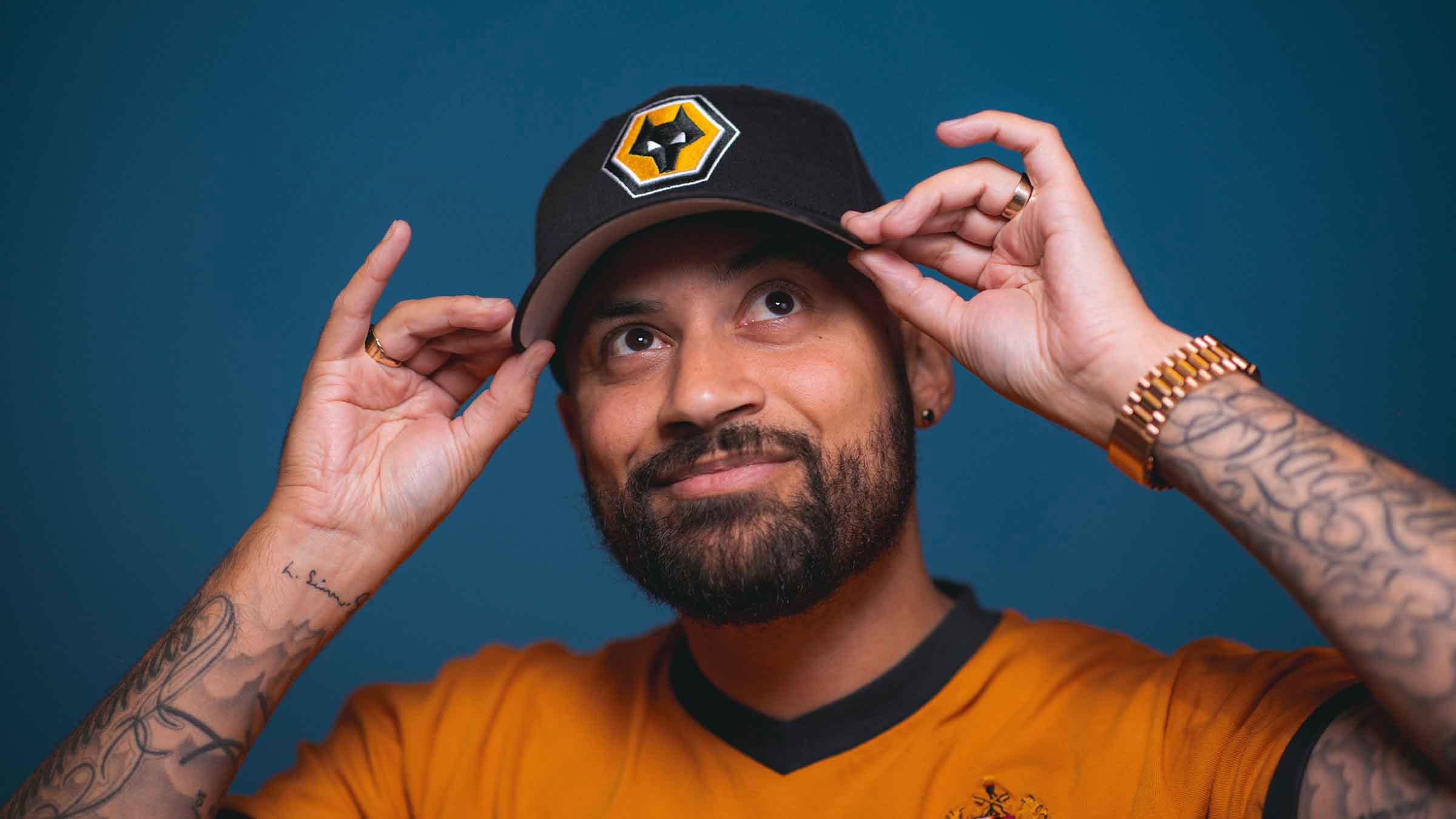
“That's what made me passionate about joining the EDI (equality, diversity and inclusion) group, just so I could have an input, and try and see what's going on in the world. Find out why people are not being represented at football matches, when I know for a fact there's lots and lots of fans who, just for whatever reason, don't attend the matches.
“For me, it's kind of important to dive deep into the reason. Maybe people aren't aware that when they come to a match now, they'll get a very different experience than what they would have even 10 or 15 years ago.
“Rumours of what could happen, or what has happened in the past, might have put people off, but it'd be good for the community just to know that actually it is a safe space, and action will be taken if things happen that aren't desirable at football matches.”
Alex’s involvement in Wolves’ EDI group is driven by a desire to make sure that football is truly a place for everyone, and one significant step in that progress is the launch of a new Black supporters’ club.
The Golden Black group is only in its infancy but has already seen more than 40 members join its ranks and is something Alex sees as a positive move in the right direction.
“I think it's definitely a brilliant idea just to spread the word. It can't be a bad thing, so I hope it gets up and running.”
As they continue to share their love for Wolves, Alex and Michael stand as a testament to the enduring power of football to connect generations.
From childhood memories of watching Bully score in the pouring rain, to the pride in walking out as a mascot with Danny Batth almost 30 years later, their Old Gold journey is one of unwavering passion for their football club, but it’s also a journey that also reflects the changes within the game and the importance of making football a space where everyone feels welcome, regardless of their background.
For Alex, the memories of the past remain close to his heart, but he’s equally excited about a future which Michael is going to play a big part in. Together, they represent the evolving face of Wolves’ support, united by a shared love for their team, while being hopeful that the club’s community will continue to grow and reflect the diversity of Wolverhampton itself.
